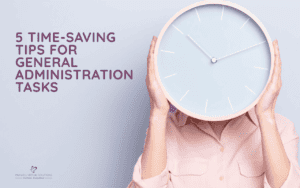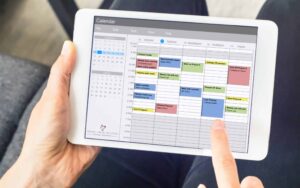
Should I Pay An Accountant To Do My Self-Assessment Tax Returns?
There are so many allowable expenses you can claim to legitimately reduce the amount of tax you pay to HM Revenue and Customs (HMRC) every year.
This is not through tax evasion (we don’t want to end up paying penalties or behind bars!) but through creative accounting and taking tax relief where you can, which is offered by HMRC.
As a rule, you’re only allowed to claim costs for items or services you’ve bought ‘wholly and exclusively in relation to your business.
The amount you owe will vary dramatically, depending on how much profit your business made the previous tax year. Fortunately for all of us, the UK Government appreciates that running your own business can be expensive. That’s why you’re allowed to deduct the cost of some of these business expenses from your profit, thus reducing the amount of tax you owe through Self-Assessment.
At the end of the day having your accountants check what you have done will avoid you paying any penalties in the future!
With Maxwell Virtual Solutions we can help you sort and file your Self-Assessment Tax Returns starting from £240 per year.
I mean this is roughly costing your business £20 per month and is tax-deductible!
What a bargain…
To help you to start saving money, take a look at our list of Self-Assessment expenses you can claim against your tax bill – these are most of them but be sure to check anything you are not sure about with your accountant.
- Accountants Fees including bookkeeping fees. This is a great starting point as we have already discussed how important an accountant can be to you and your business.
- Wages, salaries and related staff costs
- Insurance, rent, rates and power
- Council Tax
- Maintenance and repairs to equipment and premises
- Car, van and travel (mileage costs)
- Advertising and Marketing
- Office supplies
- Charitable donations
- Subscription costs
- Work-related uniform
- Stock or materials
- Professional fees
- Banking and other financial charges
- Unpaid invoices (bad debts)
- Pension contributions
- Pre-trade expenses
(The general rule is if you took on the expenses within 7 years of commencing business trading then they can be claimed for tax relief in addition to your normal expenses arising from doing business.)
HMRC have made it simple and easy to do your tax returns on your own online. The most obvious benefit of doing your own tax return is avoiding an accountant’s fee.

Whilst you may be more than capable of doing your own Self-Assessment tax return online in most circumstances, there are times when an accountant will be worth their weight in gold.
For example, an Accountant can:
- give you advice on financial challenges you may face in your business
- help you navigate through the ‘salary versus dividend’ minefield
- bring peace of mind knowing you are doing things correctly
- check your bookkeeping, ensuring that all sales and expenditure have been identified correctly
Deadlines
HMRC must receive your tax return and any money you owe by the deadline. The last tax year started on 6 April 2021 and ended on 5 April 2022.
And that is it…
In this blog we’ve discussed the question – do I need an accountant to do my Self-Assessment tax return?
We have found there are circumstances where you can do it yourself and save quite a bit of money in accountancy fees.
There are of course other situations where using an accountant could be very beneficial, if not necessary. You shouldn’t be afraid to give this work to an accountant if you aren’t comfortable doing it yourself, or if you have a complex return to deliver.
The overarching rule of the Self-Assessment tax returns is – to get it right!

MEGAN MAXWELL
Hi, I’m Megan Maxwell, the Wonder Woman behind Maxwell Virtual Solutions and self-confessed Queen of Organising. I have been organising people’s lives since my first day on this planet – from my own life to those of family members, friends and new clients as a professional organiser. What can I do for you?
Blog Posts

5 Time-Saving Tips for General Administration Tasks
5 Time-Saving Tips for General Administration Tasks As a small business owner, you have a lot on your plate. You are responsible for everything from

How Can A Virtual Assistant Keep You Sane?
How Can A Virtual Assistant Keep You Sane? “Calling all entrepreneurs, executives and business owners! Do I have news for you? You are going to

Should I Pay An Accountant To Do My Self-Assessment Tax Returns?
Should I Pay An Accountant To Do My Self-Assessment Tax Returns? There are so many allowable expenses you can claim to legitimately reduce the amount

NEW YEAR, NEW EFFICIENCY: TRANSFORMING YOUR BUSINESS OPERATIONS IN 2024
NEW YEAR, NEW EFFICIENCY: TRANSFORMING YOUR BUSINESS OPERATIONS IN 2024 As we embark on a new year, it’s the perfect time for businesses to evaluate

The Importance of Organized Scheduling for Business Owners
The Importance of Organized Scheduling for Business Owners As a small business owner, your schedule is probably packed with important tasks, meetings, and deadlines. Staying

Outsourcing Payroll: How it Can Save Your Business Time and Money
Outsourcing Payroll: How it Can Save Your Business Time and Money Managing a small business can be tough, and taking care of administrative duties such




